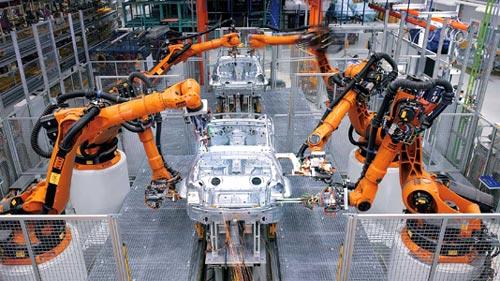Sociology of Knowledge Professor Nico Stehr and LSE’s Dustin Voss criticise the current digitalisation debate that is dominated by naïve and simple calls for reskilling the workforce. Rather, we should focus on promoting so-called knowledge abilities to effectively empower employees to cope with a rapidly changing working environment.
In a recent Foresight Brief of the European Trade Union Institute (ETUI), Aìda Ponce Del Castillo outlined the likely impacts of artificial intelligence on the world of work. Of course, she’s not the first to do this. The question whether robots will largely substitute human workers in the near future has been hanging above our heads like the sword of Damocles for a long time. Recently, the OECD warned that no less than 66m jobs were at risk of robot replacement.
Problem awareness doesn’t seem to be the issue. What’s much more worrying is the rather uninspired quest for sustainable solutions. The usual reaction in politics and the industry is a clarion call for reskilling. Workers – in particular those who aren’t “digital natives” – must be taught to use new technologies and software to remain valuable in the job. This analysis is deeply flawed, however, because it is exclusively technology-centred. In this functional view, knowledge is considered to be immediately productive and enabling. Workers simply have to be taught the working of new technologies (that is, new knowledge) and will be immediately able to put it to good use.
Knowledge ≠ Empowerment
The reality looks very different. While, thanks to the latest advantages in communication technologies, access to knowledge is greater than ever before, it is never immediately productive. For example, only because I know how a PC processor works in theory, this does not mean that I will also be able use its computational powers to solve novel and challenging problems. Also, no one can really anticipate what our working world and the relevant digital innovations will look like in just a few years. This renders productive and targeted reskilling effectively impossible.
Remarkably, the ETUI’s refreshing conclusion goes far beyond this simple view. Much more important than reskilling, they emphasise that “workers need to become ‘AI literate’; that is, able to understand AI’s role and its impact on their work. This involves learning to work alongside AI and anticipating and visualising how AI can and will transform their career and role in a company”. From a sociology of knowledge standpoint, that’s quite a noteworthy conclusion.

A New Action-Based Focus: Knowledge Abilities
The relevant question is not which knowledge or technical skills to teach, but which abilities workers need in the digitalized age to translate the amazing abundance of knowledge into purposeful action. We call these knowledge abilities. In theory, knowledge abilities are social and cognitive skills for productive detours. In simple terms, they put knowledge into action.
Thus, they can best be defined as a bundle of social and intellectual skills that can help workers to solve tricky circumstances, not exclusively, but increasingly caused by digitalisation. For example, knowledge abilities are behind such important competencies as the ability to exploit discretionary opportunities; the skill to communicate and participate effectively; the ability to take account of multiple, sometimes conflicting aspects; the skill to anticipate and set priorities; the capacity to avoid or exclude something; the ability to generate new and convincing ideas; the skill to reflect about one’s own thinking; or the ability to cope with failure.
Whether workers find qualified employment in the digitalised economy will crucially depend on whether they can mobilise such knowledge abilities. Because as a whole, this set of knowledge-based social skills enables people to cope with rapidly changing (working) environments and an essentially uncertain future.
We need to understand the importance of knowledge abilities
Unfortunately, trivial views of the digitalised economy prevail and action-based approaches remain severely understudied. To cope with the new pressures of AI and the uncertainty of a digitised future, it is absolutely paramount that the power of knowledge abilities is further investigated and systematically promoted. Both, politics and the industry should not hesitate to invest in the exploration of knowledge skills and the best ways to teach and disperse them at all educational levels.
The ETUI’s call for improved “AI literacy” is very refreshing. But it will need knowledge abilities to effectively empower employees to cope with a rapidly changing working environment in the digital age.
Nico Stehr was Karl-Mannheim Professor of Cultural Studies at Zeppelin University in Friedrichshafen, Germany. His recent publications include Is Knowledge Power? (with Marian Adolf, Routledge, 2016) and Information, Power and Democracy (Cambridge University Press, 2017).
Dustin Voss is an entering PhD student in the European Institute of the London School of Economics.



